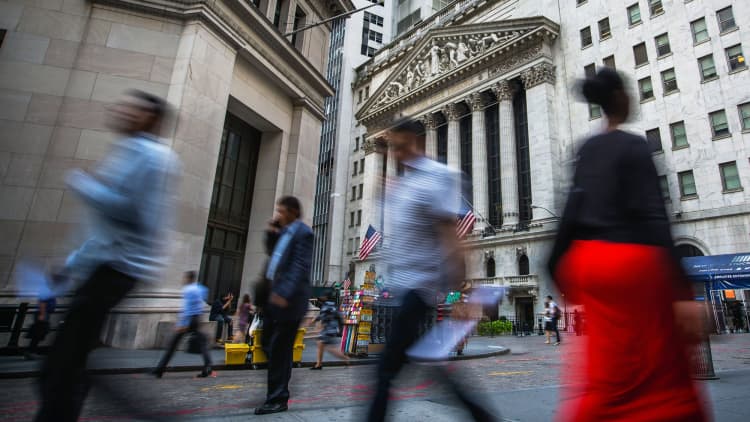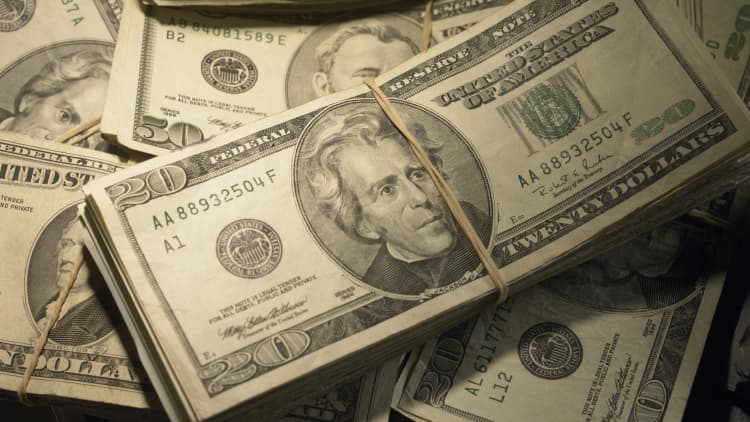
Companies have been feverishly putting the savings they reaped from the tax breaks passed in December into their investors' pockets this year.
Share buybacks in 2018 have averaged $4.8 billion a day, double the pace for the same period last year, according to market data firm TrimTabs. That comes following Congress's move to slash the corporate tax rate from the highest-in-the-world 35 percent to 21 percent.
The buyback announcements also have happened amid a volatile backdrop for the stock market, which briefly endured a correction in February — defined as a 10 percent drop — but have rebounded to near record highs in March. The share repurchases have helped keep the market afloat, as investors have pulled $23.5 billion out of funds that focus on U.S. stocks this year, according to Bank of America Merrill Lynch.
"The feverish buyback activity suggests companies plan to use a hefty chunk of the money they expect to save on taxes to buy back stock," David Santschi, director of liquidity research at TrimTabs, said in his weekly report.
"Share repurchases are arguably the most conservative things companies can do with their money other than pay down debt," he added. "Buy why pay down debt when central banks allow you to borrow for almost nothing on an after-tax basis?"
Tax-cut opponents feared that companies would use the windfall to benefit shareholders rather than grow through investments in capital and manpower. The most recent data suggest that the money is flowing in both directions.
While GDP growth for the first quarter won't be known for another month or so, 2017 figures indicated a trend toward increased capital expenditures. Nonresidential domestic investment increased 6.6 percent in the fourth quarter, which included an 11.8 percent surge in equipment, the biggest rise in more than three years.
Still, the jump in buybacks is likely to draw attention.
Though buybacks slowed last week to just $8 billion, one three-week period in weeks ending Feb. 1-15, saw buyback announcements jump nearly $148 billion. Since the start of February, the total is $162.5 billion, part of a $231.2 billion surge in cash deployment when including new takeovers.
"Both the number and volume of buybacks have stayed elevated even though earnings season has ended, suggesting companies will be using a substantial share of their corporate tax savings to repurchase shares," Santschi said.
JP Morgan recently estimated that by year's end, buybacks would reach a record $800 billion, a 51 percent increase over last year and in keeping with the trends TrimTabs has recorded for the year to date.
WATCH: Buybacks in 2018 to total $800 billion thanks to tax reform



